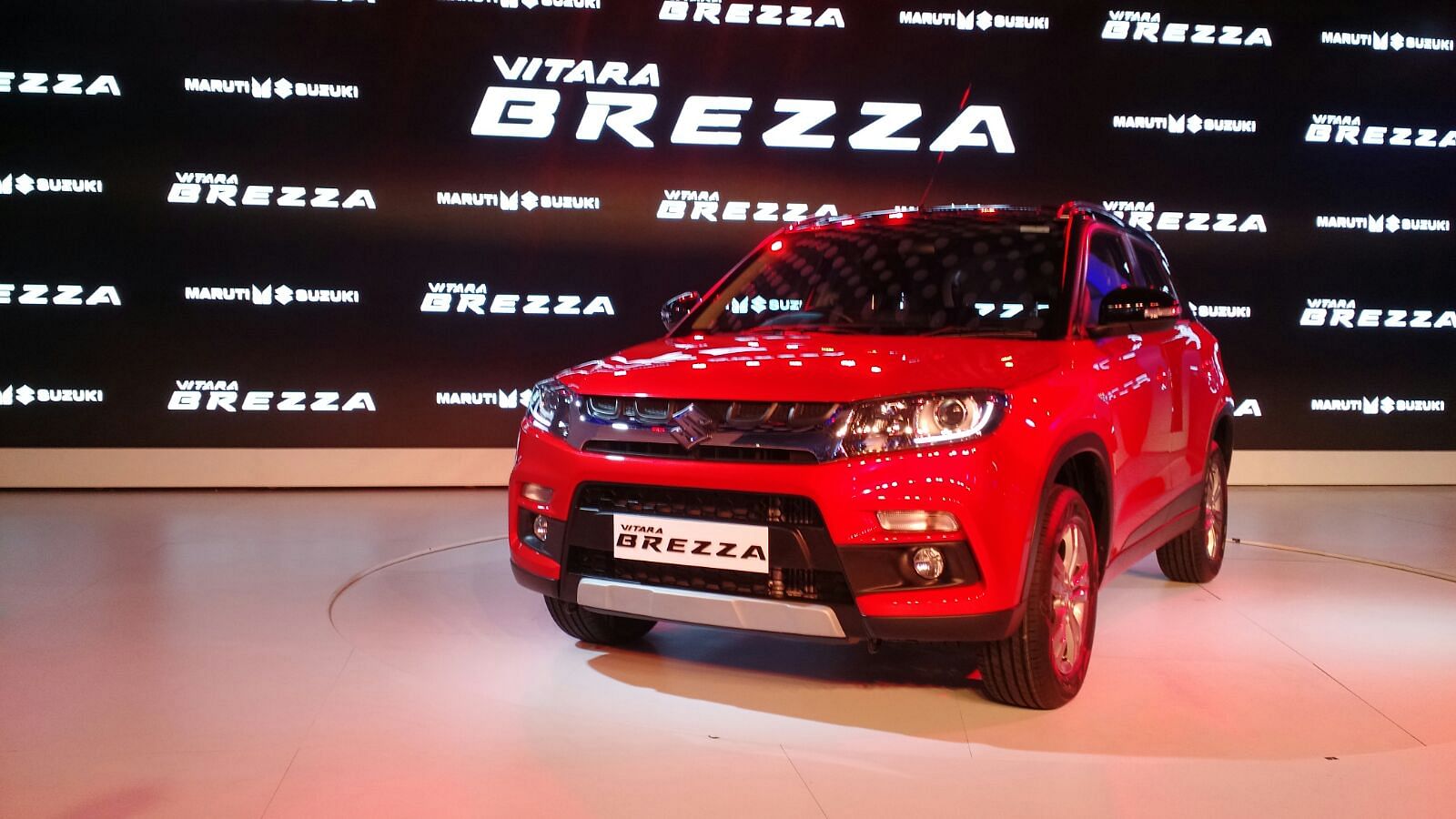‘Suzuki will be developing advanced technology, jointly with India, which will be transferred to India in the future.’
Toshihiro Suzuki, president of Suzuki Motor Corporation, speaks to Hormazd Sorabjee on the challenge of increasing its profitability, sharing technology with Maruti and why an alliance with a global automaker is not on the cards.
Toshihiro Suzuki, president of Suzuki Motor Corporation, who earlier today revealed the made-for-India Maruti Vitara Brezza compact SUV, speaks to Hormazd Sorabjee on a range of issues including the challenge of increasing its profitability, developing advanced technology for India, and why an alliance with a global automaker is not on the cards right now for the Japanese carmaker.
Maruti Suzuki’s dominance in India is the envy of the industry but unlike other global automakers, Suzuki’s future is hinged on India. Isn’t it risky being so dependent on a single market where margins are really low?
Having a big market share in India is a strength for Suzuki, and we want to further enhance our marketing capability and service capability in India to make our brand stronger. No doubt, increasing profitability is a challenge in India but ever since we built the first plant here in 1983 Maruti Suzuki has been growing along with the Indian auto industry. We would like to strengthen our fundamentals further and build on the foundations of what we had laid earlier.
In order to get more Indian customers, we want to enhance our capabilities in products, service and sales. We want to further increase our value and by doing so we want to take it to a situation where we are able to get better profits but yes, it’s a challenge.
Are you concerned with policy making in India? There’s no stable fuel policy and recently diesel emissions have come under attack at a time when you have invested heavily in diesel engines.
Whenever regulations like this are being chalked out, it has to be done strategically. Policies have to be shaped in a step-by-step way. In the case of diesel, any abrupt decision will adversely impact the manufacturer and it becomes difficult to comply with norms. This also causes inconvenience to customers and there’s a possibility it would adversely impact the nation as a whole.

The Vitara Brezza SUV, which debuts at the Auto Expo, is the first Suzuki to have been conceived for specifically for India but after 30 years. We have yet to see a Suzuki product designed and developed completely in India. Will we ever see one?
Since 1983, Maruti has been based upon the technology developed by Suzuki. In future we would be giving that technology to Maruti, which will use that technology to develop the models. We are sharing with Indian engineers all the technology we have developed in the past 60 years of making cars.
Our strategy is to nurture and develop Indian engineers and as a result Maruti is already contributing to the development of new models much more than it used to. We plan to focus on these employees and they will be taking the lead in developing newer models for the Indian market in the future too. Besides, Suzuki will be developing advanced technology, jointly with India, which will be transferred to India in the future. So going forward, new technology will be developed by both companies from the start.
You’ve previously denied reports of a potential partnership with Toyota. But given your low global scale (3 million units) and mostly comprising low-cost and low-margin cars, can you survive without an alliance for new technologies in the future?
I don’t think you need only scale to survive in this business. In case a company is capable of delivering products and services which are exceeding expectations of the customer, the company would still be able to manage its survival. It’s like when supermarkets came, the small vegetable seller on the street did not go out of business. But in the auto industry, the requirement for new technology is expanding and it is necessary for us to develop this technology. But to depend on an alliance to develop new technology is not good for the company. We must attempt to develop this technology on our own and it’s only when we cannot do it that we would look at a joint development and that would mean in all probability with a component manufacturer.
After Suzuki’s break-up with Volkswagen, the sense one gets is that you are not in a hurry to dive into another relationship.
Yes, just because we have broken away from Volkswagen does not mean that we are immediately looking out for some other OEM partner. We have to conduct our own study as to what kind of other technological capabilities we have before taking any decision.
Is Osamu Suzuki a tough boss, and father?
He has huge experience and he has been at the top for such a long time, so from that angle it is difficult to really take over from him and surpass his achievements. I feel blessed to have him as a father but yes working with him is tough and a challenge!
RELATED ARTICLES
'India Can Become a Major Pillar for Us' - Marquardt Group
Björn Twiehaus, CEO of Marquardt Group, and Vishal Narvekar, the company's India GM, share their outlook on the Indian m...
Luxury Car Market to Slow in 2025: Mercedes-Benz Sees Flattish Numbers
In Jan to March of 2025, the market may witness its slowest growth since COVID-19, and if the weakness continues, the se...
‘We Must Have More Women Leaders in the Auto Sector:’ Anjali Rattan
The chairperson of the New Delhi-headquartered RattanIndia Enterprises believes that with their multi-tasking nature, wo...






 03 Feb 2016
03 Feb 2016
 9073 Views
9073 Views





 Darshan Nakhwa
Darshan Nakhwa


 Prerna Lidhoo
Prerna Lidhoo


